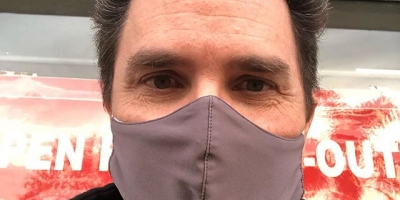I’ve talked about the subject of “deep linking” before, but this has got to take the cake: NPR’s Linking Policy which requires ANYONE who links to their site to request permission before doing so: [url=http://www.npr.org/about/linking_form.html] NPR’s Linking Policy[/url]
To quote from the above:
[i]—–
Request Permission to Link to NPR.org
Linking to or framing of any material on this site without the prior written consent of NPR is prohibited.
Please use this form to request permission to link to npr.org and its related sites.
—–[/i]
I don’t know about all of you, but I find this policy to be incredibly moronic. NPR has managed to piss off the [url=http://www.daypop.com/search?q=NPR+linking+policy&search=Search&t=w]webblog community[/url] with this policy, and it’s time for them to hear about it. I submit the following letter for your perusal:
Copy & paste, modify to suit, and send to: [url=mailto:ombudsman@npr.org]ombudsman@npr.org[/url]
——-
To whom it may concern-
As a frequent contributor to my local NPR station and a web developer, I find your Linking Policy as expressed on this page (http://www.npr.org/about/linking_form.html) to be offensive to my intelligence and to the foundational principles upon which the Internet has been built.
The entire idea behind Hypertext is that a document can be linked to other documents containing similar or beneficially-related information. As I’m sure you will agree, the NPR website contains a wealth of information on current world and national events, politics, and culture (among many other things). I would think that NPR would want as many people possible to be exposed to this content, for if NPR doesn’t put the content online for it to be read/downloaded, why do they have a website at all?
When someone links to a website, that website is effectively receiving both FREE advertising and site traffic. In addition, having numerous links to a website can provide said website with a higher ranking in many popular search engines (Google comes to mind). Almost all websites strive to increase their site traffic and search engine ranking. Why any organization would seek to turn the same away is literally beyond my comprehension.
By placing content online, you implicitly agree to have others view/download–and LINK TO–that content. If you do not wish for that content to be viewed/downloaded, then that content should not be placed online. While I certainly don’t advocate the practice of framing page content, I feel that linking to ANY website, once it has been placed on the public Internet, is the fundamental right of any web publisher.
As a contributor to NPR and a taxpaying citizen of the United States of America, I am one of the people ultimately responsible for keeping NPR on the air and online. I demand that you change this Linking Policy immediately, and until such change has occurred I will forego any further contributions to NPR.
Sincerely,
YOUR NAME
YOUR ADDRESS


